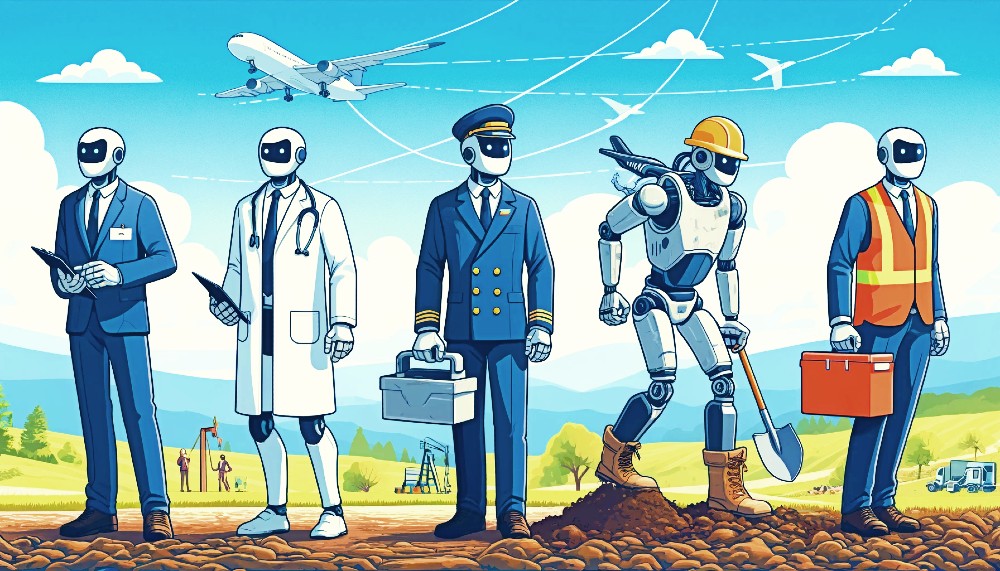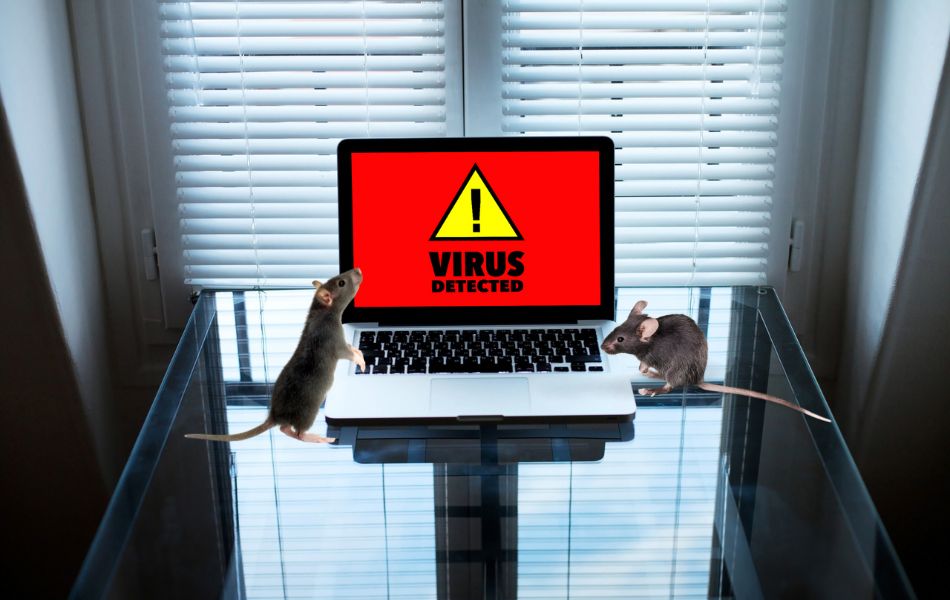We asked an AI what jobs would be safe from AI in the near future? It confidently listed professions like nurses, creative artists, and other seemingly irreplaceable roles. But I think it’s lying, or at least just telling me what I want to hear. So here we ask an AI and a human for their best guess on what roles, if any, are safe… for now… maybe?
Creative Professions and AI
The AI writer tells me that creativity, innovation, and original thinking are hallmarks of human expression that AI struggles to replicate. Professions such as artists, writers, musicians, and designers rely on a spark of originality that AI cannot yet mimic. Moreover, AI’s creative outputs lack the emotional depth and cultural relevance that human creators bring to their work, making these roles even more secure from AI automation.
Human Response
Yeah nice try but really, that game is basically up. I wrote a hit song once, so I know of what I speak. Today AI can write better lyrics and more emotive chord progressions than I can. I live in China now and I watched robot painters here last week creating beautiful landscape paintings. AI created the image for this article. If I create a video for this article AI will put most of it together and do the voiceover.
These are just things I have seen myself in the last week or so. And I’m not even looking that hard. The reality is that the vast majority of ‘creative’ work is repetitious and derivative. It’s provided a living for mediocre talents like me for my whole life, but it’s ending sooner than you think.
The AI says “creativity, innovation, and original thinking” can’t be replicated by AIs. But really, it doesn’t have to be. Most movies, TV shows and music today aren’t creative, innovative or original. Humanity only produces a few Da Vincis, Spielbergs and Bowies in any generation. Most photographers, illustrators, musicians, video editors and music producers will be out of a job in short order. Human Verdict: 90% of creative jobs aren’t safe for long.
Emotional Intelligence-Based Roles and AI
The AI tells me that jobs that demand high levels of emotional intelligence, empathy, and interpersonal skills form a domain where the human touch prevails. Therapists, counsellors, and social workers navigate complex human emotions and relationships, tasks that require nuanced understanding and empathetic responses beyond the capabilities of AI.
Human response
I went to therapy for years. I spent a lot of money on it. The therapist just kept asking things like “so how does that make you feel, so how did that make you feel, so why do you think you did that? Basically, they prompt you to talk and after a year or two of that at $150 an hour, you should be good to go. As the clip below clearly shows, AI can easily do that – and much cheaper!
I have seen my mother in a rest home. I think a robotic bedside companion would have been kinder to her than the overworked and underpaid human workers she interacted with. You can probably think of plenty of examples yourself.
Human Verdict: Yes, there’s something to this. For example, the social worker who has to physically visit a family and make a call on whether or not the children need to be removed to state care for their safety, that’s probably still one for humans. But companions in nursing homes or therapists? There’s going to be more robots providing those services sooner rather than later.
Complex Problem-Solving and Decision-Making Jobs
According to the AI, roles entailing intricate problem-solving, critical thinking, and strategic decision-making pose a formidable challenge for AI. Management consultants, strategic planners, attorneys and senior executives operate in dynamic environments that demand contextual understanding, nuanced judgment, and foresight—qualities that AI algorithms struggle to encapsulate.
Human response
Ha! We agree at last. Why? My other day job is a lawyer. There’s so much complexity involved in helping people with their legal problems – particularly if it’s a gnarly case. Most people don’t know where to start, and don’t know how to describe their predicament. There’s always a mix of emotions which have to be ‘heard’ and then filtered for relevance as all avenues for resolution are considered and presented. And at the same time, the opposition is doing exactly the same thing.
Then the case has to be presented to the court, with all the performance aspects and compelling storytelling that that entails. I’m sure similar processes occur for the other roles the AI has mentioned above. I just can’t see this being handled by a robot quite yet.
Human Verdict: The lawyers and architects are probably safe, but their support staff? Not so much. I use AIs all the time now for my legal work. I will draft the rough response to a client’s legal question, and then ask AI to rewrite it for me to sound more lawyerly. The results are spectacular. I ask the AI to find me a case or a precedent that I can vaguely recall from memory, and it surfaces it in a fraction of a second. This is the type of work that law firms used to hire legions of researchers and assistants for. Those jobs are on the way out in my opinion.
Skilled Trades and Manual Labor
While the AI says it has made strides in automating certain manual tasks, skilled trades necessitate a blend of dexterity, problem-solving acumen, and adaptability that AI systems have not yet mastered. Tradespeople like plumbers, electricians, and carpenters perform tasks that necessitate fine motor skills and on-the-spot decision-making in varied environments—traits that AI systems find challenging to replicate.
Human response
Yes, yes, yes. Again, like the family social worker example above, these are people whose roles involve attending to a situation in person and applying a physical skill to remedy a problem. Last month water from the upstairs shower started coming out a light fitting in our lounge downstairs. Yikes. On inspection we found it had been leaking for years. The fix required a plumber, a builder, a plasterer, a tiler, a cleaner and a waste removal service to take away the broken shower and all the rotten timber. AI could not have done any of that. Verdict – those jobs are safe for a long time.
Emerging and Niche Professions
In the 1700s and the early 1800s, the majority of people spent most of their day engaged in agriculture. Essentially just trying to get enough food together to feed themselves, their families and maybe their communities. Today’s office worker is a modern day plow horse. Over time their roles will be retired, but new frontiers will emerge, creating demand for specialized skills and roles that AI has not yet infiltrated and may never do so.
Moreover, these new roles will require human oversight to guide the integration of complex systems into societal frameworks, underscoring the importance of human judgment in these fields.
Conclusion
The future of work will be shaped by a synergy of human ingenuity and technological innovation. Adaptability, continuous learning, and a focus on honing uniquely human skills will be pivotal in navigating the evolving job market landscape and staying ahead of the curve. Furthermore, the rise of AI technologies has the potential to create new job opportunities through increased productivity and economic output, offering a more optimistic view of AI’s impact on the job market. Well, that’s what the AI told me anyway, but if it doesn’t work out that way – to paraphrase The Simpson’s Kent Brockman “I for one welcome our new robot overlords.”







